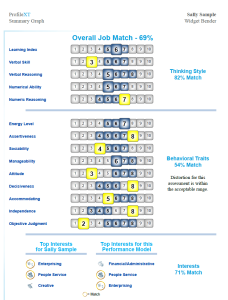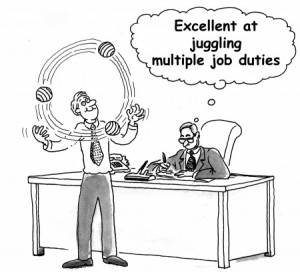Once you have been through interviews and are satisfied that you found the right person, reference checking will help you validate the information from the interviews and the resume. This may lead to a final interview or job offer. If a candidate is presently employed, you might want to make a job offer on condition that you can speak with their present boss to validate your information.
Performance Based Questions
 Brad Smart, author of Topgrading recommends letting your candidates know throughout the interview process that you will be validating the information provided by them with their former employers. This will remind the candidates to be frank in their answers. He also recommends asking performance based questions that highlight specific accomplishments in task or responsibilities that are crucial for job success.
Brad Smart, author of Topgrading recommends letting your candidates know throughout the interview process that you will be validating the information provided by them with their former employers. This will remind the candidates to be frank in their answers. He also recommends asking performance based questions that highlight specific accomplishments in task or responsibilities that are crucial for job success.
For example if you are hiring a sales representative for selling software services, you might ask the candidate “tell me about your methods for prospecting”. Another way to ask this question to elicit measurable performance would be “tell me about a prospecting method you used to develop new clients and what the measurable outcome was of a specific campaign”? The second question will provide measurable results that can be verified with the former employer.
This line of questioning takes more time and preparation and the level of difficulty to generate measurable performance metrics will vary depending on the job. For example in more routine type jobs this would be more difficult to generate specific examples so your  goal would be to check that they actually performed the important tasks of the job and the level of skill and quality of work.
goal would be to check that they actually performed the important tasks of the job and the level of skill and quality of work.
Tests & Assessments
In my last article on interviewing candidates I suggested using assessments, one for the first interview and another for the finalists. Once I choose my best candidates from the first interview I use the Profile XT assessment to gain better insight. The Profile XT is a total person psychometric assessment as it measures thinking style, behaviour and occupational interests.
Furthermore, it matches the person to a customized performance model for the position, thus you have more data to predict future performance and gain deeper insight into what may not be obvious about the person. Assessments should only contribute to one third of the hiring decision. The other two thirds should be their knowledge, skills and experience and their fit with the culture of the company.
Brad Smart also recommends asking the candidate to contact their references to arrange the phone interviews for you. I have used this method and it really works well, because in the past I often had difficulty in reaching the references.
Questions for References
 Here are a few good questions to ask the references and also a relevant article containing more questions and suggestions.
Here are a few good questions to ask the references and also a relevant article containing more questions and suggestions.
What were this person’s main responsibilities when he or she was hired? And later?
What were the person’s strengths and weaknesses?
How did this person perform in comparison to his or her colleagues?
Why did this person leave your company?
Would you employ this person again? Why?
Reference checking interviews are an essential component hiring candidates and will validate the information collected during the various stages of the selection process.
Stephen Goldberg